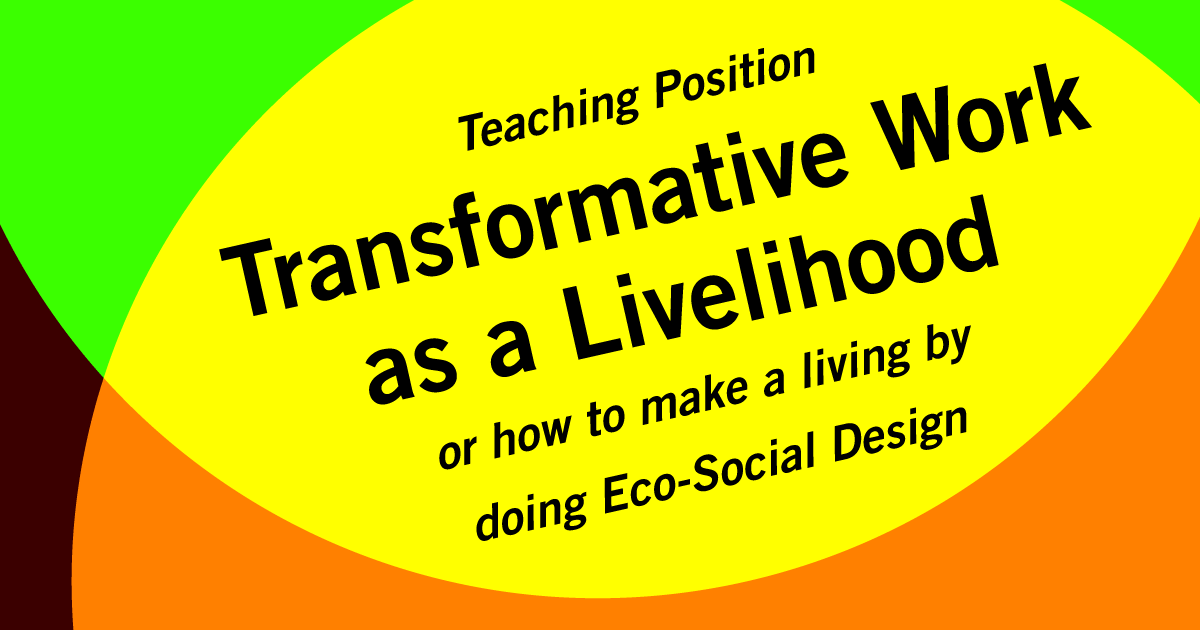For the MA Eco-Social
Here is the call. Application deadline: 01.09.2023, 12:00 a.m. (CET). If you have questions about the application procedure, please email Recruitment Design. For questions concerning the MA Eco-Social Design and the teaching practice, please contact me via email. My apologies for the bureaucratese form of the call. It is out of my hands to make this different :( But the work itself and the atmosphere in our study course and research projects are sunny and truly collaborative :)
Transformative Work as a Livelihood
or how to make a living by doing Eco-Social Design.
The practice-based and transdisciplinary Master in Eco-Social Design is an educational framework for designers who aim to contribute to more sustainable, resilient and solidary futures. It supports students in developing their reflective practice by introducing students to challenges, partners, knowledges, instruments and strategies from diverse fields, which they draw together in their autonomous projects.
Along with the work on their projects and the regular courses, students choose Short Seminars, which provide complementary competencies helping them to sharpen their practice and to get prepared for doing transformation-engaged work after graduating.
Transformation-engaged study courses react to an urgent societal and ecological need to educate students to become change agents. However, as this design approach is still emergent, finding the right opportunities for eco-social designers in the present market conditions is challenging.
The seminar outlines the challenges and questions, then proposes concrete approaches for making “eco-social transformative” work economically viable through showing diverse forms of transformative work and new roles for eco-social designers. Concrete cases of transformation-engaged practices, including economic considerations, help demonstrate: roles within established work contexts in the mainstream job market; the foundation of self-initiated enterprises and (unconventional) alliances; and, radical alternatives embedded in solidarity economies and mutual support structures.
Students can learn, which mix of approaches and roles best fits their desires and capabilities.
The Seminar will take place as a workshop spanning across three days (usually Monday to Wednesday).
